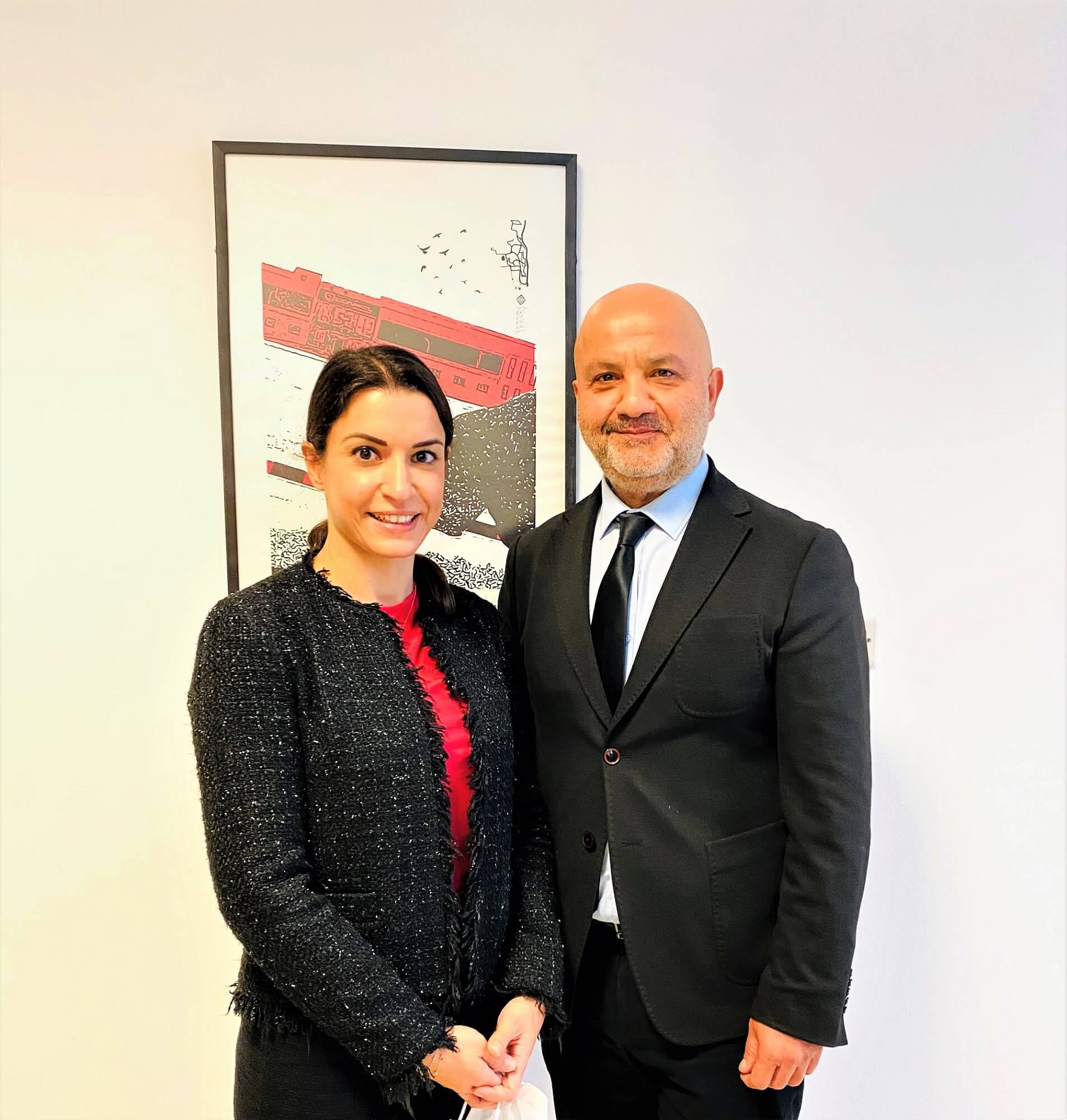
The European Congress of Clinical Microbiology & Infectious Diseases (ECCMID), the largest microbiology congress in Europe, held in Lisbon, the capital of Portugal, brought together 14 thousand participants from many countries. One of the Near East University researchers, who participated in the congress as an invited speaker, Assoc. Prof. Dr. Buket Baddal, made her presentation titled “The Use of Artificial Intelligence in the Diagnosis of COVID-19 Real-Time Polymerase Chain Reaction (PCR)” in the “COVID-19 Diagnosis: New and Latest” session. Assoc. Prof. Dr. Buket Baddal’s speech attracted great attention from the microbiology community.
Organized for the 32nd time this year, ECCMID consisted of a comprehensive scientific program that included training workshops, open forums, meetings of experts, and various scientific symposiums as well as oral sessions. In the congress, where the COVID-19 pandemic was widely covered, many different topics in the field of clinical microbiology and infectious diseases were discussed. Respiratory tract infections, gram-negative infections in intensive care units, fungal infections and anti-fungal agents, seminal developments in parasitic infections, sexually transmitted diseases, microbiome, molecular typing and genome analysis, biofilm, antimicrobial resistance, vaccines. and the latest developments in new antibiotics were shared.

The use of artificial intelligence in the diagnosis of COVID-19
One of the most important sessions of the congress was devoted to the latest technologies used in the diagnosis of COVID-19. In this session, Near East University Faculty of Medicine, Department of Medical Microbiology and Clinical Microbiology Lecturer Assoc. Prof. Dr. Buket Baddal shared with the participants the machine learning-assisted diagnosis algorithm they developed to carry out COVID-19 PCR test analyses faster and with higher accuracy. Speakers from ten different countries took part in the two-hour session headed by Dr. Petar Velikov and Snjezana Zidovec-Lepej.
The project, in which Near East University Acting Rector Prof. Dr. Tamer Şanlıdağ and Cyprus International University Computer Engineering Faculty member Dr. Emre Özbilge were also involved, aims to alleviate the burden of PCR tests on healthcare professionals and healthcare systems with automated analysis methods and enable microbiologists to work more efficiently.
Assoc. Prof. Dr. Buket Baddal: “Artificial intelligence-assisted PCR diagnostic algorithms are important for possible future pandemics.”
Assoc. Dr. Buket Baddal, who is also in charge of the Near East University Hospital Molecular Microbiology Laboratory, stated that artificial intelligence applications have started to be applied in the field of clinical microbiology in recent years and that they can reduce the workload by speeding up the analysis of microbiology tests with automation. Reminding that during the pandemic process, thousands of clinical samples were tested daily in the laboratory, Assoc. Prof. Dr. Baddal underlined that the artificial intelligence-supported algorithms they developed for COVID-19 PCR diagnostic tests can also be used to identify all viral and bacterial pathogens whose diagnosis is based on RT-qPCR.
Assoc. Prof. Dr. Baddal said, “The integration of artificial intelligence-based applications into the laboratory systems in our country is very valuable for rapid diagnosis, isolation and treatment processes in possible future epidemics.